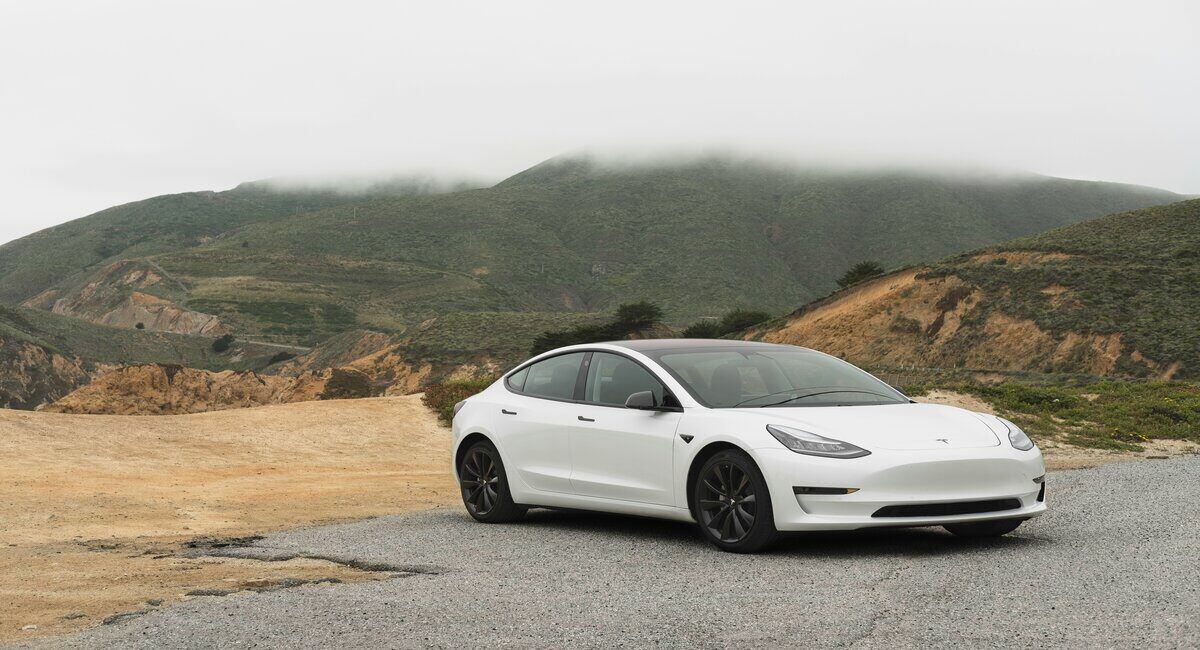Given that the cost difference between options can be a matter of thousands, choosing the right car financing can be just as important as choosing the car itself. Whether you’re leaning towards a car loan or dealer finance program, it’s definitely worth taking some time to ‘kick the tyres’ and do the calculations first to ensure you’re not getting ripped off.
Here’s a crash course on comparing car loans and dealer finance, where we look at the differences plus some of the pros and cons associated with each.
In the market for a new car? The table below features car loans with some of the lowest interest rates on the market.
Lender | |||||||||||||
|---|---|---|---|---|---|---|---|---|---|---|---|---|---|
| Variable | New | 1 year | More details | ||||||||||
| FEATURED | New Car Loan - Home Owner Special
| ||||||||||||
New Car Loan - Home Owner Special
| |||||||||||||
| Fixed | New | 99 years | More details | ||||||||||
| Loan amounts from $2k to $75k | New Car Loan
| ||||||||||||
New Car Loan
| |||||||||||||
| Fixed | New | 1 year | More details | ||||||||||
| Approval within 24 hoursEarly payout available | New Car Loan - Special (Fixed)
| ||||||||||||
New Car Loan - Special (Fixed)
| |||||||||||||
| Fixed | New | 2 years | More details | ||||||||||
New Vehicle Fast Loan Low Rate | |||||||||||||

- Available for purchasing new and demo vehicles
- $5,000 to $150,000 loan amount
- Redraw facility available up to $5000/day
- Required: Good credit history, stable employment history. Aus citizenship or PR.
What is the difference between car loans and dealer finance?
A car loan is a type of personal loan used to purchase a car. It is a ‘secured’ personal loan, with the car acting as collateral (security) for the loan. Car loans usually have a much shorter loan term than a home loan, with loan periods typically between one and seven years, depending on the lender.
Dealer financing is a type of loan offered by car dealerships which can allow customers to drive away with the car quicker and help the car salesperson close the sale faster. Dealer finance often offers lower interest rates than a standard car loan, but often requires a balloon payment to be made at the end of the finance period. Dealer finance programs are usually limited to new cars, whereas car loans can be taken out for new or used cars for sale from dealerships or private sellers.
Dealer financing vs bank loans: Pros & cons
A quick look at some of the pros and cons of financing a car through dealership vs a car loan can help give you a feel for what’s suited to your circumstances.
| DEALER FINANCE | CAR LOANS |
|---|---|
| PROS: | PROS: |
| Convenient: Dealer finance is convenient because you can decide on a car, take out finance and drive away on the same day. The dealer takes care of the entire loan process for you, including all the paperwork. | New & Used Cars: Car loans can be used to purchase new, used, vintage or eco-friendly cars from private sellers, auctions or car dealerships. |
| Low rates: Dealer finance often comes at some very enticing interest rates of 1% or less, with low repayments required over the finance period. | Choice: With a wide range of lenders and car loans to choose from, you have the power to shop around for good value. |
| Negotiable: Aspects of the financing can often be negotiated with the dealer. Dealers may try to provide a better deal than any car loans you mention in order to get you to finance with them instead. | Flexibility: The flexibility of car loans can give you more control of your debt over the loan term. For instance, you may be able to switch to a fixed rate, change your repayment frequency or refinance to a lower interest rate. |
| CONS: | CONS: |
| New vehicles only: Dealer finance is usually restricted to new vehicles, which are typically more expensive and faster depreciating than used cars. | Higher rates: Car loans don’t tend to advertise interest rates between 0-1% – car loan interest rates are typically over 5%. |
| Balloon payments: Many dealer finance offers are only available at such appealing interest rates because you’re required to make a lump sum ‘balloon payment‘ at the end of the finance period. | Approval time: While dealer finance can be approved on the spot, car loan applications can take a bit of time to process – anywhere between a few hours to several days, depending on the lender. |
| Possibly higher sale price: An interest rate between 0% and 1% might sound good, but it could be a sales ploy to encourage the sale of the vehicle at a higher price. | Less haggle room: Car loan lenders can be less likely to budge on the terms of the car loan. Their first offer may be their best one. |
Tips on financing a car through a dealership
- Ensure you take your time to fully understand all the fees, terms and conditions of what you’re signing up for before you agree to a deal. Don’t be pressured by car dealers into rushing a decision.
- Check if a lump sum payment (such as a balloon payment at the end of the finance term) is a compulsory part of the deal. Does this suit you?
- Ensure you’re getting a good price for the car. Don’t let a low interest rate distract you from the true value of the car, which should be represented by the price.
- Find out what the comparison rate applies to – is it based on the entire amount and length of the loan?
- Compare what car loans are available and calculate what they’ll cost you. Show these cost calculations to the car dealer to see if they can offer you better value.
- Consider your timing. Some times of the year offer better opportunities to get good value on dealer finance than others, such as the EOFY period (May/June) and plate clearance sales (start/end of the calendar year).
- Re-consider buying brand new. A new car will lose a significant amount of its value the minute you drive it out of the dealership – upon which it is immediately classed as ‘used’. Alternatively, inquire with your dealership about any financing services for used cars they might have.
Tips on getting a car loan
- Shop around and compare interest rates to maximise your chances of getting good value. Use comparison rates when comparing (these can better reflect the total cost of the loan – and are inclusive of both the interest and fees)
- Use a car loan calculator to get a good idea of how much the car loan might cost you.
- Avoid applying with multiple lenders. This could hurt your credit rating. You can compare car loans without applying for them.
What is 0% car finance?
From time to time some car dealers may advertise '0% car finance' offers. As the offer suggests, under a 0% car finance deal you don’t pay interest on your repayments. Sounds too good to be true, right? It’s important to bear in mind that these advertisements aren’t always what they seem and can have hidden costs involved.
These deals can involve paying a higher price on the car, a large balloon payment at the end of the term, or are only 0% interest for a set ‘promotional’ period before reverting back to a generally higher interest rate. Be sure to do your research and read the terms and conditions (Yes! Read the details…) so you know what you’re signing up for.
FAQs
Can I finance my car through dealership with bad credit?
Car dealers tend to offer less favourable rates than car loan providers (although not always), and this can make it easier for someone with bad credit to get a car. Some of them offer packages to people with bad credit too.
That doesn’t mean you should though. If you have bad credit, strongly consider whether you will be able to afford to pay off the loan.
Is it easier to get a car loan from a bank or dealership?
Getting a car loan is usually easier through a dealership than it is through a bank. Dealership finance is often designed to be arranged on the spot quickly to help the salesperson close the sale.
But while getting a car loan from a dealership might be easier, dealership finance is not necessarily the right choice for your finances. Always consider and compare the interest rates, fees and flexibility of a product before you sign up.
ASIC ban on flex commissions for car dealers
In September 2017, the Australian Securities and Investments Commission (ASIC) announced a ban on ‘flex commissions’. ‘Flex commissions’ were commissions paid by car finance companies to car dealers and car finance brokers based on how high the dealer/broker can set the interest rate on the car’s finance. Essentially, a higher interest rate generated a higher commission.
A car loan lender has a base interest rate which applies to most of their applicants. In contrast, a car finance dealer has an interest rate range (from a base to a prescribed maximum) which can be negotiated between each individual consumer.
ASIC said flex commissions were an issue because car dealers work on commission and it was apparent that many were charging excessively high interest rates to raise their overall commission. The new ban, which will be enforced from November 2018, will forbid car dealers from suggesting an interest rate that would earn them higher commission, as well as several other changes to ensure fairer car financing for consumers.
Savings.com.au’s two cents
All in all, car loans and dealer finance can both be valid options for financing a car. The key to generating savings is to know all the options available to you (and what all the fees are) and to do the calculations to understand the total cost of each option. That should help reveal which option will cost the least over the term. Of course, you should consider the costs alongside what your needs are – the cheapest option isn’t always the best suited.
Article first published 31 July 2018, last updated 13 April 2021.





 Brooke Cooper
Brooke Cooper

 Harry O'Sullivan
Harry O'Sullivan
 Aaron Bell
Aaron Bell
 Hanan Dervisevic
Hanan Dervisevic

